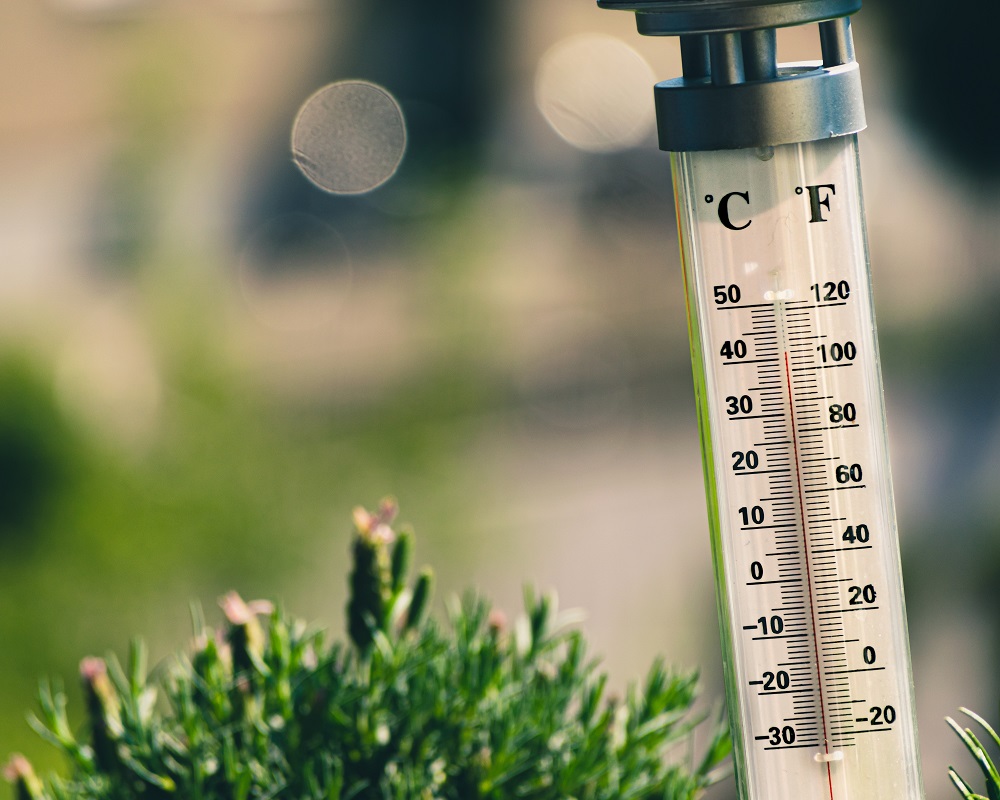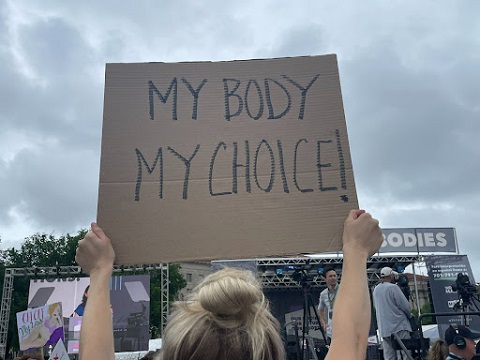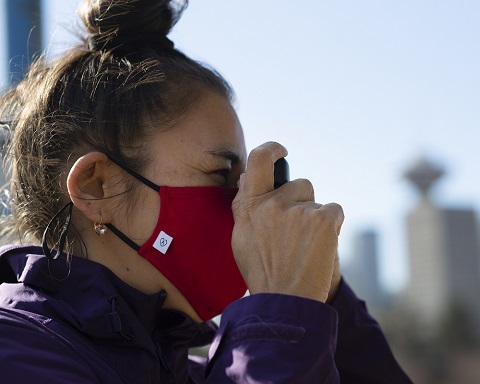By Helen Hill, Street Roots
August is typically the hottest month of the year in Portland [where Street Roots is sold], with temperatures often soaring into the upper 80s and 90s [Fahrenheit]. The downtown core is especially vulnerable, with canyons of sun-drenched buildings, searing metal cars and asphalt roadways absorbing, radiating and amplifying temperatures. Car exhaust, heat waste from air conditioning units and sunlight reflecting off acres of glass windows adds to the thermal heat sink of the inner city.
High temperatures bring added risks and dangers for those surviving on the streets, especially seniors and people living with disabilities. Heat can exacerbate medical conditions such as diabetes, respiratory problems and heart disease. Those on a methadone program are at greater risk for arrhythmia and breathing difficulties when the mercury rises. People can become more anxious, aggressive, confused or irritable. Many typically spend nights on the move in order to stay safe, then sleep during the daylight hours, putting them at risk for severe sunburn. And the risk of food poisoning is heightened for those without access to refrigeration.
Street Roots vendor Ben Eiland feels the summer heat acutely. He was born and raised in the snowy mountains of Leadville, Colorado, with an elevation above 10,000 feet. He credits Portland’s iconic “Benson Bubblers,” for keeping him cool. There are more than 50 of the bronze bowls perpetually flowing with cool drinking water throughout downtown Portland.
“One time I was so tired I fell asleep without taking off my shoes and washing my feet. Overnight I ended up with a septic wound. I had to hobble my way to the doctor. He said it was bad. If I couldn’t keep it clean and dry, I could lose toes, my foot. The heat makes it worse.”
“Simon Benson’s wife wouldn’t come to town with him anymore because she thought it was dirty and people were drunk and passed out everywhere,” Eiland said, recalling the story behind the bubblers’ origin. “He figured if he put water fountains in, people would drink water, not alcohol, and his wife would come to town with him again. That was in 1911. I soak my shirt and hat in them, then throw them back on. It helps a lot.”
A vendor who wished to remain anonymous pointed out another issue with the heat on the streets.
“When it’s hot, if your pants are too heavy, or you wear them a few days, you can start getting rashes from sweat, where your skin rubs together, on your thighs, and you can start getting infections, just from your sweat,” he said. “Sweat turns to ammonia. It gets nasty. If you wear the same pair of socks for a few days in a row, the smell of ammonia is terrible. You can get abscesses, sores if you don’t wash your feet constantly. It does not take long for this to happen. One time I was so tired I fell asleep without taking off my shoes and washing my feet. Overnight I ended up with a septic wound. I had to hobble my way to the doctor. He said it was bad. If I couldn’t keep it clean and dry, I could lose toes, my foot. The heat makes it worse.”
“In (one of the downtown shelters where he was staying), there is no air conditioning, no ventilation, with 50, 60 people,” he said. “The windows are never open. It’s just a box. And they open one door and put a fan in it. When I first went there I was against the back wall, no air. It was so hot. You are just sleeping with nothing, just a pillowcase covering yourself, then the bedbugs come in and rip you to pieces. One night I climbed on top of a table to sleep because my bed was covered with bed bugs. One of the guys came by and said I couldn’t sleep on the table, I showed him the welts all over me from the bed bugs, and he said, ‘definitely sleep on the fucking table.’ The heat can be really bad, at best you see people lying in their underwear.
Kerry Anderson said, “You get to know where the fountains are, which ones you can jump in, which one’s you aren’t supposed to.”

Troy’s strategy was straightforward.
“You have to drink lots of water and find shade,” he said. “I was out selling papers, I got blisters, you can see them here. (He points to his legs.) They are healing up. My one friend, he blistered through his pants. He was wearing sweat pants. So you have to be careful, find shade, or you can get heat stroke. But people are friendly when it’s sunny, so it’s OK. And when the sun goes down, it’s cooler. If the sidewalk’s hot, just throw some cardboard down, it’s fine. But you don’t want to wake up with the sun on you.”
For vendor Mykel Garner, taking good care of his new dog Petey has helped him find ways to stay cool.
“I usually hope I sell papers so I can get something cold to drink. Then I go down to the Ira Keller fountain (Southwest Third Avenue and Clay Street) with my dog. We get in the water and cool off. Petey loves it. Never been told to get out. It’s right across from the jail, and lots of kids can play in the troughs, in the fountains and the waterfalls with their moms and dads. The cops never bother us or tell us to get out.”
Mykel also likes to take Petey to Poet’s Beach just north of the I-5 Marquam Bridge on the west side of the Willamette River.
“Petey can run around down there, get in the water. I have a raft thing I found in the garbage, it’s like a plastic doughnut. I blew it up and he tries to get on it with me. He’s really helped a lot with my depression, helped me get out of the house. I wasn’t eating much before I got him,” he said.
“When it’s hot, people tend not to think clearly, and their judgement is impaired. You are groggy, tired, you make the wrong decisions and you could walk out in front of a car and get smashed. It causes trauma when you don’t need it.”
Heather Duffield said she goes to her mother’s when it’s hot.
“It’s so uncomfortable for me,” she said. “I used to work at a restaurant before my disability, I had to work at a hot stove all the time, I think that’s where I started not being able to handle it. It feels like I can’t breathe. Sweating is hard, too, the medications I’m on regulate my body temperature, make me hotter, I think. I just try to drink a lot of water, sometimes I put a sheet in the freezer and put it over my head,” she said.
Mark Herinek addressed the psychological effects of severe heat.
“When it’s hot, people tend not to think clearly, and their judgement is impaired. You are groggy, tired, you make the wrong decisions and you could walk out in front of a car and get smashed. It causes trauma when you don’t need it. People are moody, cranky, uncomfortable, and they can go off on you. The tension cools down at night, depending on the places where you put yourself. Stay away from the dark places, where there’s a lot of garbage or rats, people doing drugs. Try to keep in the light. There are city lights everywhere. There’s always some kind of light somewhere.”




















